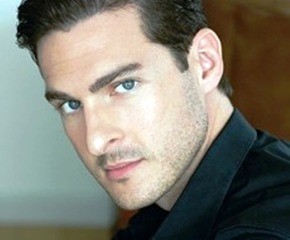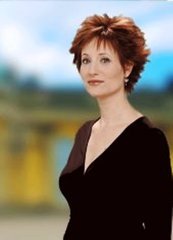|
Back
Rage, Rage Against The Rising Of The (Cigarette) Light New York
Stern Auditorium, Carnegie Hall
03/17/2017 -
Ottorino Respighi: Vetrate di chiesa – Rossiniana
Ermanno Wolf-Ferrari: Il segreto di Susanna
Julianne Borg (Soprano), Michael Kelly (Baritone)
The Orchestra Now, Leon Botstein (Conductor)

M. Kelly (© Courtesy of the Artist)
“Smoking I find the most ridiculous of all the varieties of human behavior and practically the only one that is entirely against nature. Can you imagine a cow or any animal taking a mouthful of smoldering straw then breathing in the smoke and blowing it out through its nostrils?”
Ian Fleming, Goldfinger
As New York’s Sanhedrin–the pious all-knowing Jewish Establishment–shouted recriminations and anathematizations at John Adams’ Death of Klinghoffer outside the Metropolitan Opera about two years ago, I firmly expected that the American Medical Association and AARP would rage, rage against the rising of the light (the cigarette light in this case)–outside Carnegie Hall last night.
The Secret of Susannah was not only an homage to (what we now know as) the Coffin Nail, the Cancer Stick, but in one beautiful Puccini-style aria, our eponymous heroine sings of “the gossamer mist rising in azure rings and circling into nothingness...”
And to end this comic opera with the two singers lighting up and congratulating themselves on both enjoying their tobacco. Well... that is hardly educational for our children and grandchildren.
This aside, The Secret of Susannah by the German/Venetian master Ermanno Wolf-Ferrari was a delicious jewel, unearthed, of course, by Leon Botstein. Amongst his manifold merits, Mr. Botstein is one of the great musical archeologists of New York, digging up shards of music which nobody else would touch. And while this is not always successful, last night’s 45-minute “intermezzo” achieved a real memorability.
Part is the music itself, for in the age of Mascagni, Leoncavallo and Puccini, composer Wolf-Ferrari could hold his own. Only two singers in the entire opera, but their various arias were melodious, dramatic and memorable. Yes, they clung fiercely to the zeitgeist of the fin de siècle (written around 1908), coming very close to Puccini originality. But they had a transparent touch as well.
Then there was the libretto–which I saw as a parody of operatic melodrama of the time. The story was simplicity itself. A husband believes his wife his cheating on him because he smells cigarette smoke in their apartment. She believes he is angry because of the cigarette itself. It was Abbott-and-Costello confusion–but with all the faux drama of Puccini. In fact, during an interrogation, I was reminded of the tragic inquisition of husband and wife of Puccini’s Il tabarro (instead of Il Tobacco!). It all ends happily enough.
Third were the performers. Michael Kelly’s picture is on top only in homage to St. Patrick’s Day. But his growling, melodramatic pushing and shoving and his love duets were exciting and sync with the times.

J. Borg (© Courtesy of the Artist)
Yet Julianne Borg, starting with a light strained voice, quickly gained composure, and her “smoking aria” had an import worthy of heavier operas.
Mr. Botstein is working with his The Orchestra Now, a corny name for the initials TON), his newest creation. They are a large group, they were perhaps rough around the edges for some of the opera, but the Wolf-Ferrari orchestration kept them floating.
The first half was devoted to a pair of other rarely-played works by another turn-of-the-century composer, Ottorino Respighi. True, his Church Windows was played by Charles Dutoit with the New York Phil some years ago, yet the TON group played this equally beautifully. And if I remember, the opening “Flight into Egypt” had last night a more exciting patina than the lugubrious Dutoit performance.
This, though, was customary Respighi. One either goes for the color and crescendos and over-vivid orchestration, or one is turned off. After all, Respighi achieved his painting through mentor Nicolai Rimsky-Korsakov, and the flute/clarinet solos in “St. Michael the Archangel” came directly from Scheherazade. I happen to love this stuff, just like I love the kitschiest orchestrations of Bach.
One sometimes needs the birthday-cake sprinkles on more solemn music.
And while Rossini opera is hardly solemn, Respighi, in the opening Rossiniana took a quartet of piano pieces from Rossini’s old age. In fact, unlike his Boutique fantasque, they are dark (though hardly Cimmerian) and sometimes almost meditative.
The playing by the whole TON ensemble and the various solos was top-rate, a fine opening for an always effulgent evening. Although three of the players gave their personal introductions to each work, I did miss the Botstein megillah on the music. We have other excellent music annotators, but Leon Botstein is the only one who puts music into the context of history, ideas, personalities and even the political events of the time.
That omission was slight, though. He had chosen music last night which hardly exhausted the brain-cells, but well energized the senses.
Harry Rolnick
|